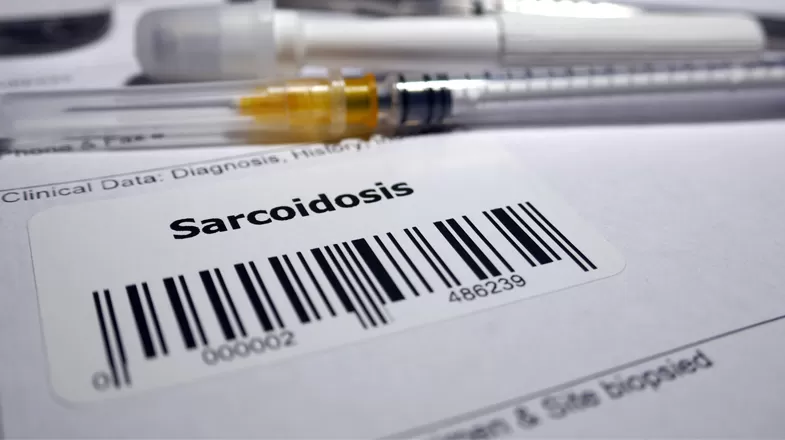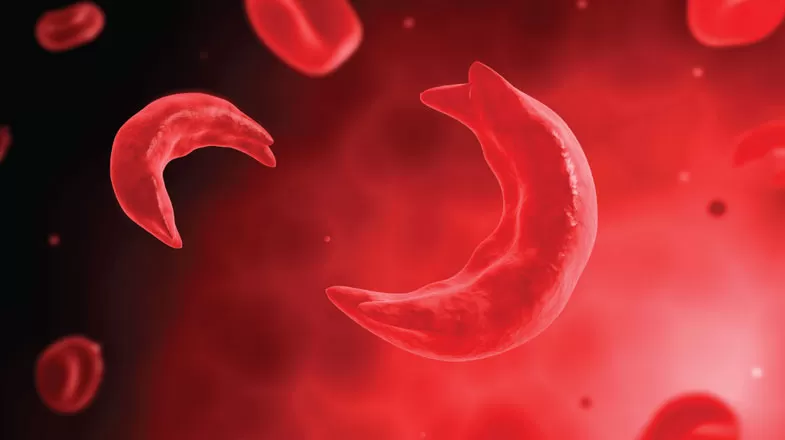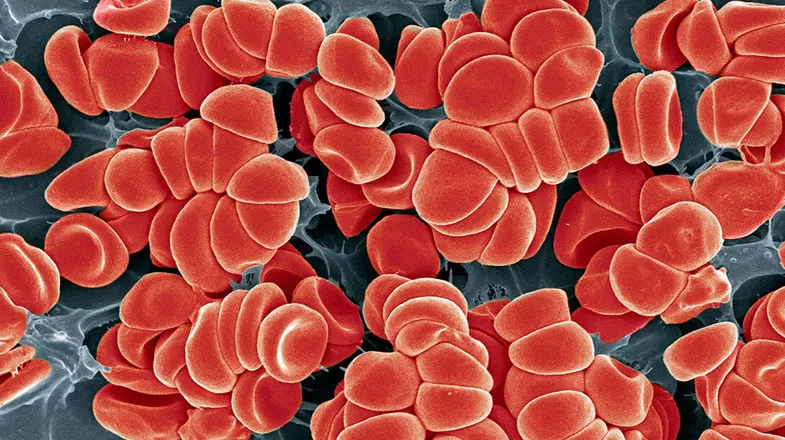Rare Diseases Articles
Featured Articles
Read our latest stories on the people and scientific innovations making a difference in patients’ lives.

Real People
The Story of Kendall Square Orchestra, a Symphony of Scientists
In Cambridge, Mass., Kendall Square is where some of the country’s top minds solve global problems. The area is a super-magnet for renowned biomedical and technology businesses. In 2009, a consulting group dubbed it “the most innovative square mile on earth.”1 It’s also a place where music unites, entertains, and maybe even heals. Since 2018, scientists and technology professionals have come together as musicians in Kendall Square Orchestra (K2O). Each season, they perform at community events...

Living & Wellbeing
What is Sarcoidosis?: Your Questions Answered
Imagine waking up one morning and finding tender, red bumps all over your skin. Your vision is a bit blurry, so you check your eyes in the mirror. They’re red and teary. Is it allergies? Weeks go by, but you don’t get any better. One day, you feel feverish and short of breath, and you notice that your lymph nodes are swollen. Something is amiss. You make a doctor’s appointment, but the symptoms miraculously vanish. The cycle repeats for years as you bounce from doctor to doctor, taking...

Purpose & Ideals
Patients’ Voices Shape the Drug Development Process Through a Preference Survey
Cory Lewis has sickle cell disease. Some days, the pain from the blood disorder hits him hard. Even on days without pain, he worries about his future and the health conditions that might arise. “It’s definitely 365 for me,” he says. As a program coordinator with Sick Cells, a sickle cell disease advocacy organization in Washington, D.C., Lewis regularly educates people about what it’s like to live with this disease—a rare, inherited condition, predominately (but not exclusively) impacting Black...

Science & Innovation
Zinc Finger Transcription Factors: The On/Off Switch for Genes Inspired by Frogs
Have you ever noticed how effortlessly frogs cling to nearly every surface? Their sticky little fingers easily grab and hold onto just about anything they want. It turns out that the frogs have protein structures that do the same thing, and these structures could be the key to unlocking therapies for amyotrophic lateral sclerosis (ALS) and frontotemporal dementia (FTD), two of the most debilitating neurological conditions affecting millions of people today. While studying the African clawed...

Genes as Medicine: Understanding Gene Therapy
Our genes are like a set of blueprints, telling our cells how to function and make essential proteins that drive life. In turn, these proteins influence everything from the color of our eyes to how well our blood clots. We have a lot of genes — between 20,000 and 25,000 in total. Every person has two copies of each gene, one from each parent. Sometimes genes can have a small mutation, or change to its protein-making instructions, which can cause certain diseases. Some of these mutations are...

Parenting with Rheumatoid Arthritis
Being a parent can be challenging for anyone, but it may be even more so for people living with a chronic (lost-lasting) condition such as rheumatoid arthritis (RA). Trying to keep up with all of a newborn’s needs—feedings, lifting and carrying, changing diapers, and bathing (coupled with a general lack of sleep)—may be even more difficult when you’re dealing with a chronic disease, let alone an RA flare.As your child grows, he or she will likely want to involve you in even more physically...

Understanding This Rare Disease Called ATTR Amyloidosis
You probably know someone with heart failure, gastrointestinal (GI) problems, or nerve pain. They are all common problems. But in rare cases, these could be caused by a life-threatening disease called transthyretin amyloidosis (or ATTR amyloidosis, for short).Although ATTR amyloidosis is currently considered rare, there is growing evidence that it may be more common than once thought. Some experts believe that the disease is underdiagnosed due to a lack of awareness. ATTR amyloidosis is not...

Living With Hemophilia
There are currently around 20,000 males in the United States who are living with hemophilia. (Women, who are genetic carriers of the disease, very rarely experience any of the condition’s symptoms.) "Hemophilia comes in several shades of gray, and not everyone who has the condition will be affected in the same way,” says Bartholomew J. Tortella, MD, Medical Director on Pfizer’s Hemophilia team. That said, most boys and men with hemophilia, and those caring for them, will face similar...

Is it Sore Joints—or RA?
We often think of arthritis as general joint pain or loss of mobility that comes along as we get older. Arthritis is an umbrella term for more than 100 different diseases and can impact young people as well as old. Rheumatoid arthritis (RA) is one of the most common types. Read on to learn more. What is RA? RA is a chronic, systemic autoimmune disease that can be painful and disabling. An estimated 1.5 million people in the United States have RA, and nearly three times as many women as men...

Managing Sickle Cell Disease as an Adult
People with sickle cell disease (SCD) are now living longer than they did in previous decades. Doctors have a better understanding of the disease, are able to diagnose it earlier, and can more readily treat and prevent the infections the disease can cause. And thanks to new ways to treat and manage the condition, patients are now more aware of what they can do to live healthier, for longer. Still, there is currently no widely available or acceptable cure for the inherited blood disorder...

Sickle Cell Trait vs. Sickle Cell Disease
Millions of people worldwide are affected by the sickle cell blood disorder. About 100,000 people in the U.S. have sickle cell disease. It mostly affects African Americans, but it can also affect people from Hispanic, southern European, Middle Eastern and Asian Indian backgrounds.Another 2.5 million people in the U.S. have sickle cell trait (SCT). But having sickle cell trait (SCT) is not the same as having sickle cell disease (SCD).What is the difference between having sickle cell trait and...

Hemophilia Q&A
Q: What is hemophilia? A: Hemophilia is a blood disorder that primarily affects males. People who have hemophilia tend to bleed for longer periods of time following an injury or surgery. This happens because they have little, or even none, of a protein called clotting factor. Clotting factors help your blood form clots, which play an important role in stopping bleeding. There are many of these clotting factors in the body that are needed for the blood to clot properly. People with...
Media Resources & Contact Information
Anyone may view our press releases, press statements, and press kits. However, to ensure that customers, investors, and others receive the appropriate attention, Pfizer Media Contacts may only respond to calls and emails from professional journalists.
